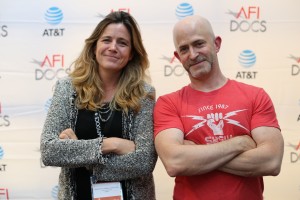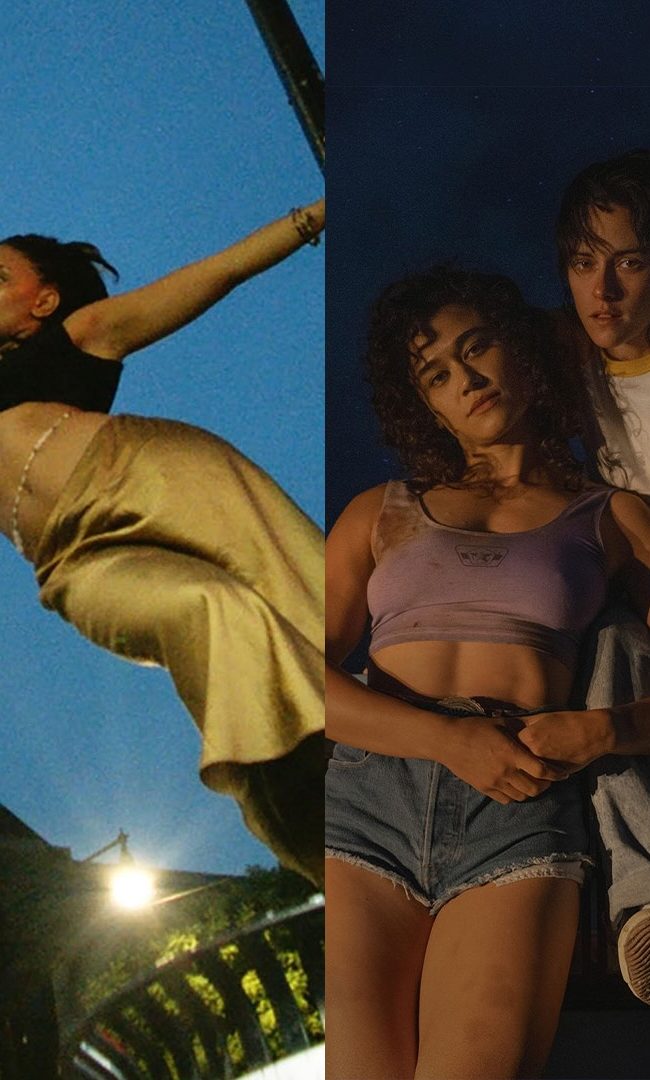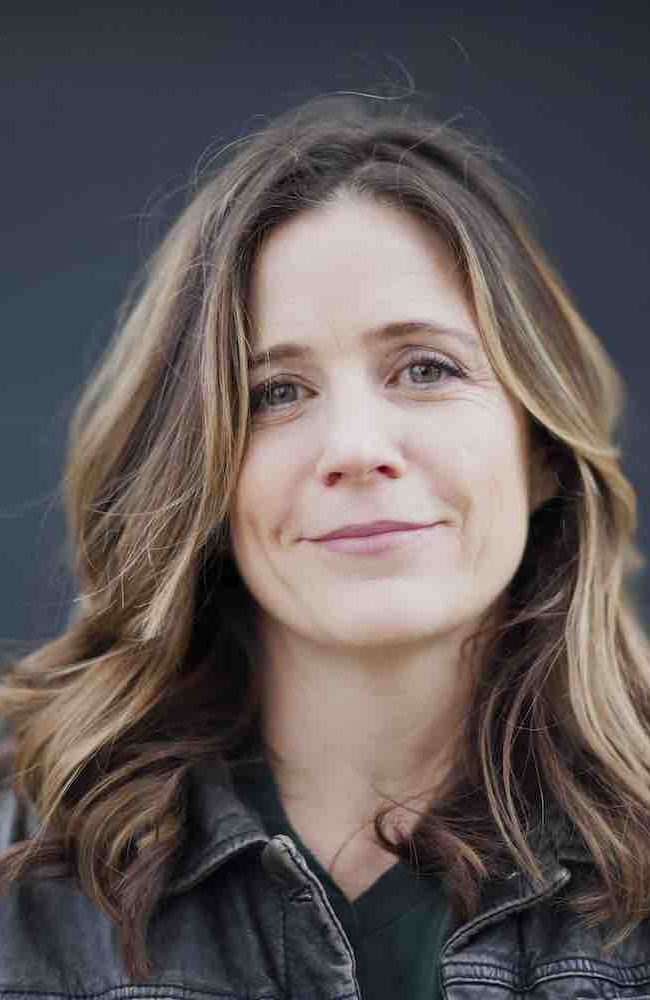A Conversation With Tracy Droz Tragos (ABORTION: STORIES WOMEN TELL)
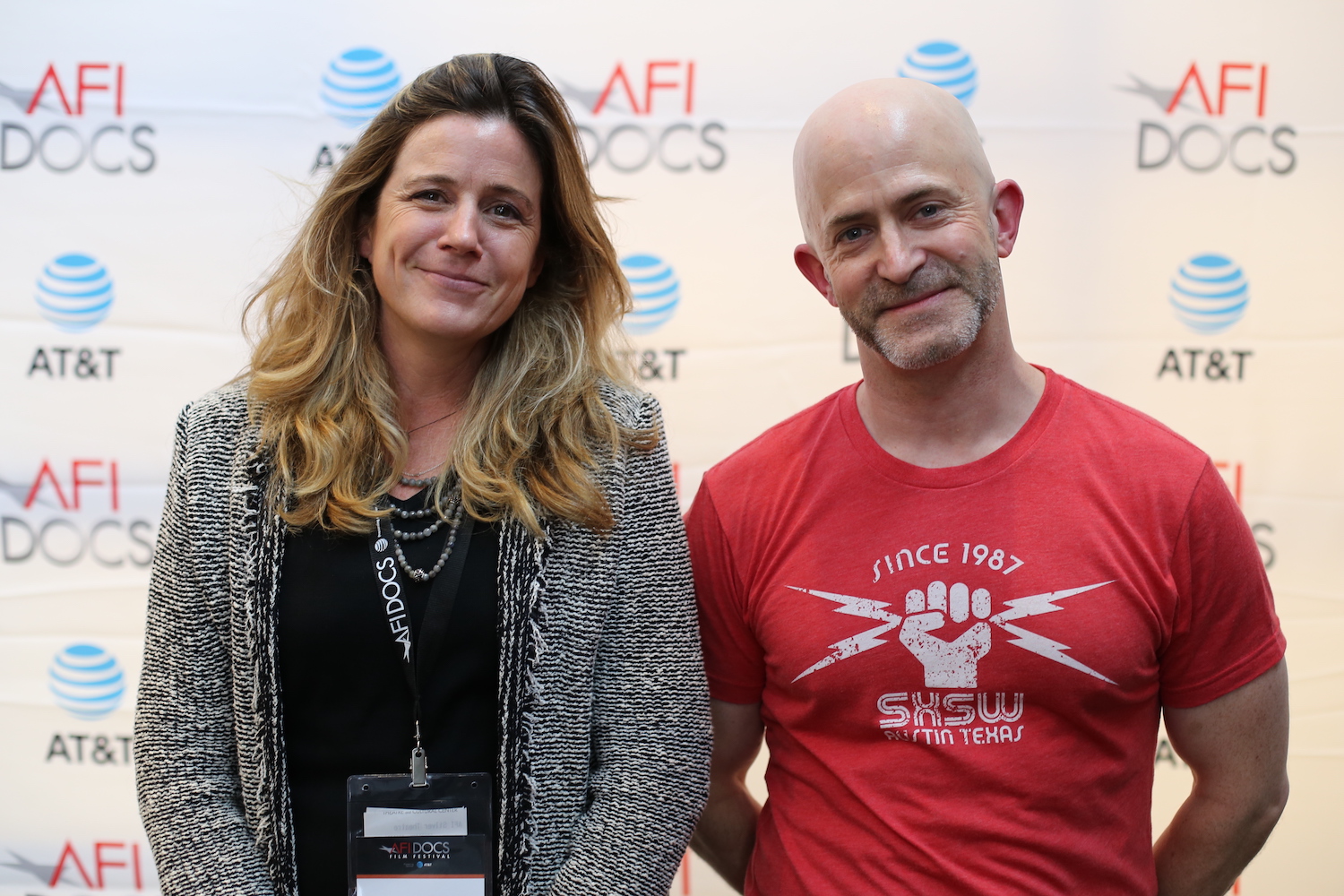
I met with director Tracy Droz Tragos at the 2016 AFI DOCS on Thursday, June 23, 2016, to discuss her new documentary Abortion: Stories Women Tell, (which I also reviewed here) in which she focuses on the experiences of a number of different women – those seeking abortions, those who provide, and those opposed – in today’s climate of increasing restrictions on the process. Here is a condensed digest of that conversation, edited for clarity.
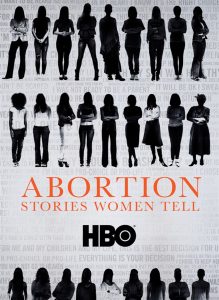 Hammer to Nail: I read in the press notes that you did not realize, when you first pitched this movie to HBO, the full extent to which women’s access to legal abortions is under assault in this country. So, I’m curious, what kind of film, then, did you initially envision, if not the one you ended up making?
Hammer to Nail: I read in the press notes that you did not realize, when you first pitched this movie to HBO, the full extent to which women’s access to legal abortions is under assault in this country. So, I’m curious, what kind of film, then, did you initially envision, if not the one you ended up making?
Tracy Droz Tragos: Well, I guess I would say that I wanted to portray what that looks like, the face of what it is to have abortion access restricted. I mean, I understood that clinics were closing, that there were TRAP laws, but what is the impact of a 72-hour waiting period and what does that really look like? I had never spoken directly to women who were impacted by some of these increasingly draconian restrictions, and those were the stories that I wanted to tell. I hadn’t met those people and I hadn’t had those conversations, but I wanted to have those conversations.
HtN: So you were always intending to do something that would tackle these TRAP laws and restrictions, but you just didn’t realize the full extent of the impact.
TDT: Well, we wanted to make a personal film. It wasn’t about the restrictions and it wasn’t about the laws, but it was about the women. And those stories. So I always knew I wanted to get to the heart of that and hear the stories, directly.
HtN: So, why Missouri, since it’s not the only state where there are restrictions, though it certainly has some of the more draconian ones? Why Missouri, and only Missouri?
TDT: Well, I’m from Missouri; I have roots in Missouri. I don’t live there right now, but I have family that lives there, so it’s more personal for me, and as a filmmaker it always makes a difference to approach a film from a personal perspective. It does happen to be one of the most restrictive states in the country, so even if I wasn’t from that state, there might be a good reason to start there. But for me it was also deeper and more personal.
HtN: Makes sense. Did you always intend to include the anti-abortion point of view, as well? And did you have any difficulties convincing some of those anti-abortion women to participate?
TDT: We wanted to take a personal approach. So it wasn’t about laws, it wasn’t about right and wrong, pro-life, pro-choice, really. The way that I approached it with every woman was, we want to hear your story, we want to hear your voice, and we’re not only hearing from people exactly like you. We’re hearing from people who have all kinds of perspectives and experiences and backstories. The self-described pro-life women knew that we weren’t only hearing from women like them, that we were talking to women who were pro-choice. One of the things in getting very personal with this is that those lines can sometimes be a little blurry, and I was always so surprised to discover that, indeed, all kinds of women have abortions, whether you call yourself pro-life, whether you’re Catholic, whether you’re…you don’t know what life holds in store for you necessarily and many, many pro-life women have abortions.
HtN: Which brings us to my next question, because there are women in your film who are, indeed, “pro-life”…a term I actually struggle with, to be honest…
TDT: I understand, which is why I say “self-described pro-life.” It’s interesting, though, and I actually spoke to some of the “pro-life” women, and they said that we would like to be called what we want to be called. And I got that. Just like you don’t want to say “pro-abortion.” It’s kind of like a thing.
HtN: Of course! You’re respectful as a documentarian. That’s fine. But what’s interesting is that some of these “pro-life” women have had abortions, and now actively oppose the ability of other women – who find themselves in situations similar to what they went through – to have abortions. For me, that’s a huge hypocrisy. Now, you let that hypocrisy stand for the audience to consider…were you ever tempted to push it a little more, or ask them direct questions about that hypocrisy? For example, there’s that author in your film, Susan…
TDT: Susan Jaramillo. Yes, I did talk with them about that. I mean, I think that part of their activism is around their regret. That’s part of their story. They would go back and they would do it differently.
HtN: So they say now.
TDT: So they say now. But, you know, hindsight is a kind of thing, that…well, you know, I spoke to many, many women who are pro-choice and who did not regret their decision, but also had complex feelings about it. They would look back and say, that was a hard time in my life, I wish these things hadn’t happened, but I don’t regret my abortion. That was the right decision for me at that time. So there’s all kind of feelings and stories, and for Susan, in particular, her story is one of regret, but she’s also had three abortions…
HtN: Your film makes very clear that there is no joy in abortion, even if you believe in a woman’s right to choose. It’s not as if anyone approaches that choice with a “huzzah!” You film makes that aspect very clear, whether there is regret or not.
TDT: Yeah, it’s never a good day. Nobody sets out to say, what do I want for my life…but it is also something that deserves some level of normalization, and for the level of shame and stigma attached to it to be eased, because it’s so much more commonplace than people realize, and so many more women have abortions, and that’s kind of the secret out there that needs to not be so secret. Women are having abortions, whether it’s legal or not legal, whether we like it or not, whether it’s fun or not, it’s necessary.
HtN: So how did you find Amie? I would call her your main protagonist, because she’s the one person whom we follow from beginning to middle to end, from pregnancy to post-abortion follow-up. How did you find her? She’s great, by the way.
TDT: I love Amie! I met her at Hope Clinic [in Illinois], and it was soon after the 72-hour waiting period became law, and this is a working mother: she has two kids; she’s working two jobs as a bartender and a waitress. She’s not someone who, previously…she’s kind of become, now, with the release of this film, more gung-ho and is more of an advocate and activist. But she’s working, raising her kids and discovers that there’s now this 72-hour waiting period when she gets pregnant, and it’s not planned, and it’s not anything that she can handle or wants, and she was pissed! (laughs) She was pissed.
So to go over state lines to Illinois was the least…it still required a two-and-a-half-hour drive for her, she still had to do it multiple times, but it was easier than accessing it in her own state. So we met her at the very beginning of that journey and I think, in part, she wanted to speak out because she was angry, and didn’t feel that she deserved to be put in the position that she was in, to miss the work, to find child care, the ways that she was impacted by the journey that she had to take, when there is a Planned Parenthood in her town, but it’s been so restricted that they can’t provide abortions.
HtN: Did you ever consider including a discussion about access to birth control, as well? Clearly, for some people, a simple use of birth control would prevent the need for an abortion. Sometimes it happens, anyway.
TDT: Well, we wanted to include as many stories as we could, because we felt that there was this cumulative effect, but even with Amie’s story, she talks about not having enough money for an IUD. And for her, that access is too expensive. It’s something she wants to do, but can’t afford it, so it’s not available to her. In Missouri, in particular – and this is a part of the story, but it just couldn’t make it into the film, but it’s a reality – it starts with sex education, and in Missouri it’s abstinence-based. Young women can get pregnant without even knowing about sex, or how they got pregnant, or why they got pregnant. It starts with, first, knowing…having some sex education…and then beyond that, of course, having access to birth control, and it’s not readily available, certainly.
HtN: Are there restrictions on condom sales in Missouri?
TDT: Well, there are some restrictions on access to Plan B, but it’s the buckle of the Bible Belt. And so there’s also just a general kind of “you shouldn’t be having sex, in the first place” attitude, which is kind of crazy, but many women are impacted by that. They feel that they shouldn’t, and then…shouldn’t plan for it, and…
HtN: I get it. FInal question: how did you find your crew? Your DPs [Directors of Photography] were Judy Phu and Kamau Bilal. He [Kamau] actually edited a A Stray, which I reviewed at SXSW this year.
TDT: Well, I have great affection for my collaborators. I found Judy though my cousin…(laughs)…who I worked with on Rich Hill, and through a sort of network of…you know, I wanted a woman DP, and I met with her, and she is amazing and I was thrilled to have a chance to work with her. But it was through a recommendation from my cousin. And she’s a badass, because she’s very small and she can heft this big camera, and I just love seeing her work.
HtN: What did you shoot on?
TDT: The RED SCARLET. And Kamau is based in Columbia, Missouri, and also a recommendation from my cousin, and I’d met him before and we’d talked about working together, and he just has a beautiful eye. It was great to have him there, locally.
HtN: Well, congratulations on the film! It’s great. I look forward to everyone else getting a chance to see it once it’s released theatrically and on HBO.
TDT: Thank you!
– Christopher Llewellyn Reed (@ChrisReedFilm)







